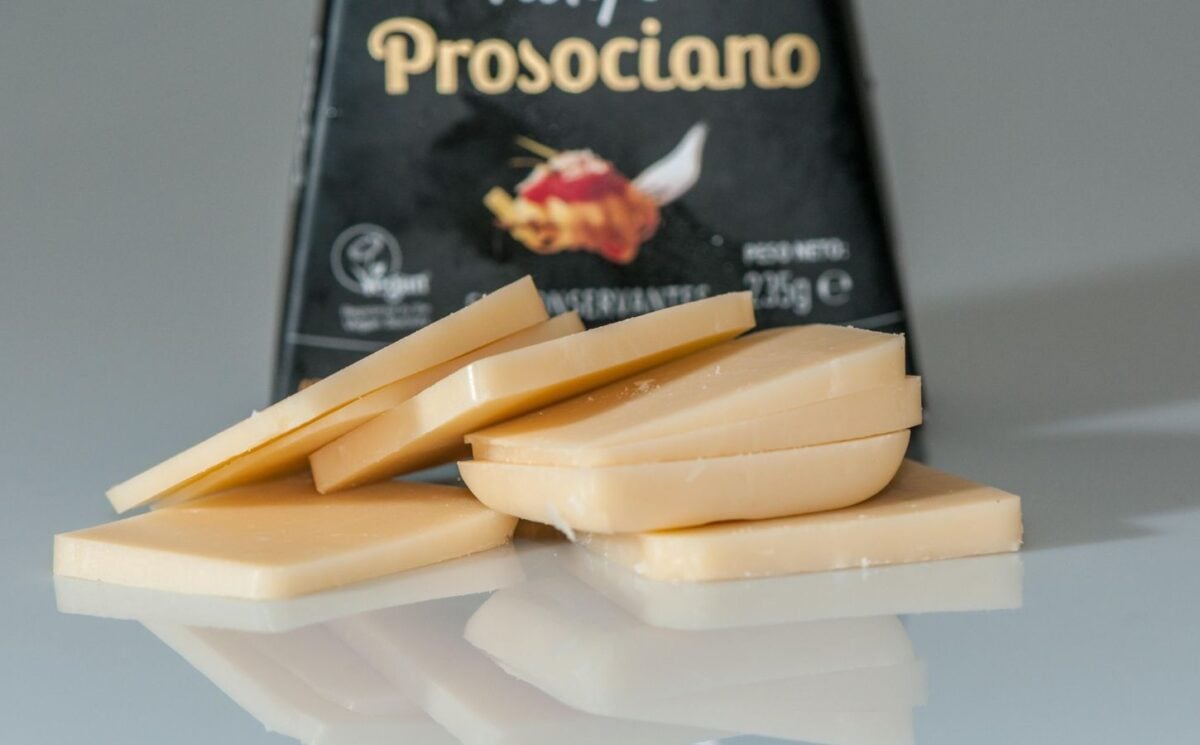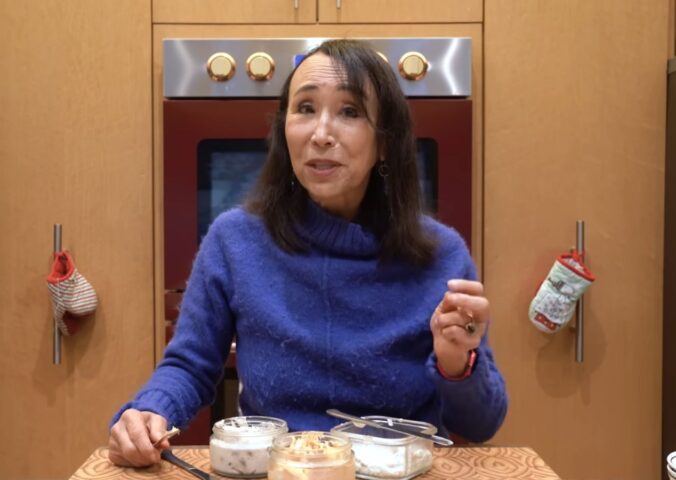Cheese is a hugely popular food eaten in an array of forms all over the world. A decade ago, the idea of a good vegan cheese would have seemed ludicrous. It’s traditionally made from cow, goat, or sheep milk, but there has been a recent influx of versions made without dairy. But what is vegan cheese, how is it made, what does it taste like, and where can you buy it?
Of all the plant-based alternatives, cheese probably has the worst reputation of all. Despite the often gruesome methods use in animal dairy production, many people are disgusted by the idea of a cheese made from nondairy, plant-based ingredients.
In the early days of dairy-free cheese, these people may have had a point. Some of the first products could only be found in niche health food shops, and many didn’t taste much like the real thing at all.
Nowadays, there are a huge number of brands available. From vegan-only companies like Violife and Sheese, to mainstream dairy brands like Cathedral City and Philadelphia, there’s a dairy-free cheese to suit any taste.
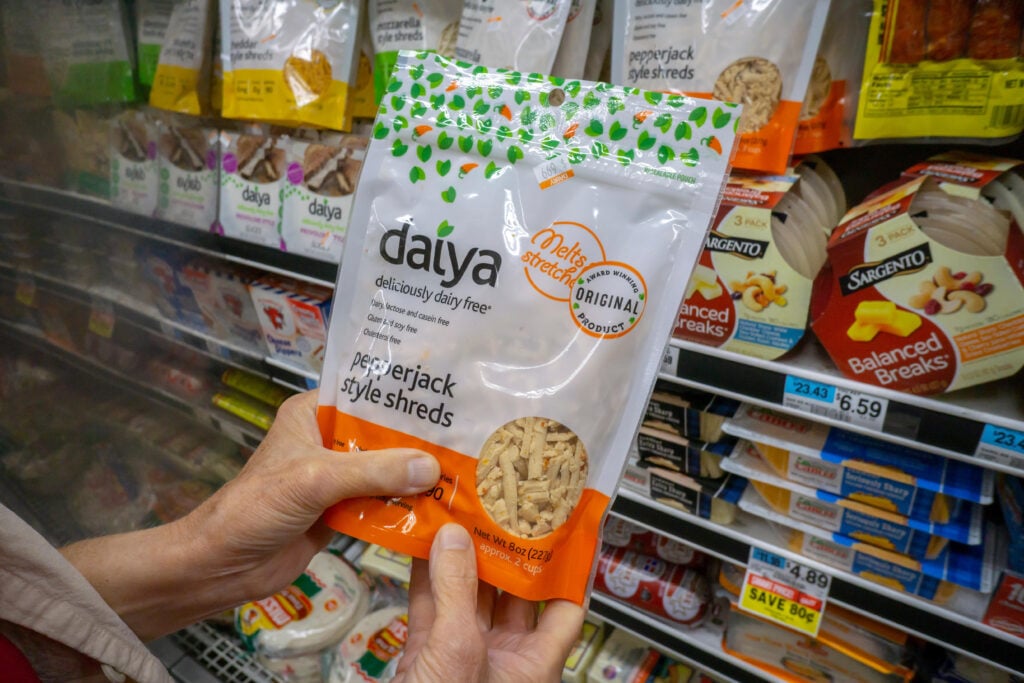
What is vegan cheese made of?
Every vegan cheese is different, and there’s no universal recipe that they all follow. One of the most common ingredients in the most popular supermarket dairy-free cheeses, however, is coconut oil.
Coconut oil is often used to mimic the texture and meltiness of animal-derived cheese. Other ingredients used are water, salt, modified potato starch, nutritional yeast, and lactic acid, for example.
Many cheeses are also made from nuts. Nuts – notably cashews – are commonly used in home made or artisan dairy-free cheeses.
Other ingredients commonly found in vegan cheese include:
- starches such as potato, tapioca, and corn starch
- pea protein
- nutritional yeast
- added B12
- binding ingredients such as xantham gum and carrageenan
- thickeners and flavorings
Is vegan cheese healthy?
There’s a common misconception that veganism is a fad diet, rather than an ethical stance against animal exploitation. This means that plant-based cheeses are regularly blasted by the mainstream media for being “unhealthy.”
In June 2022, the Daily Mail published an article titled: “Un-brie-lievable! Vegan cheese has ‘little nutritional value’ and eating too much may raise risk of type 2 diabetes and heart disease, expert says.”
But these “gotcha” articles attempting to discredit veganism always fall short. This is due to the fact that many vegans don’t mind not eating healthily all the time, as that isn’t the reason why they adopted the lifestyle.
“News headlines that criticize vegan cheese and warn people against vegan diets are misleading and miss a very important point,” Louisa Richards, Registered Nutritional Therapist, tells Plant Based News. “Focusing on one food and its health impacts is quite pointless when you don’t account for how balanced and healthy the rest of a diet may be.”
“It’s true that some vegan cheeses contain saturated fat, but often in similar amounts to dairy cheese (8.4 g saturated fat per two slices of Violife compared to 7.7 g for 2 slices of cheddar cheese). The NHS in the UK recommends no more than 30g of saturated fat per day for males and 20g for females,” Richards explains. “People who eat a whole foods plant-based diet with the occasional slice of processed dairy-free cheese are unlikely to exceed the recommended amount of saturated fat. Conversely, those that eat dairy, red meat, and processed meat can easily exceed safe amounts.”
Vegan cheese nutrients
Richards points out that another criticism of plant-based cheese is that it doesn’t contain the vitamins and minerals of dairy cheese. She says, however, that many plant-based brands fortify their products – and vegan versions will sometimes contain up to twice as much B12 as dairy. While vegan cheeses don’t usually contain calcium, Richards says that consumers can get a similar dose in plant-based foods like fortified bread, tofu, kale, chickpeas, and almonds.
A 2020 review concluded that there is no evidence that a well-planned plant-based diet is detrimental to bone health. In fact, it may even help protect from osteoporosis.
“Vegan cheese is not a particularly nutrient-dense food, and if this was all a vegan ate, they may be in trouble,” says Richards. “But the true picture is that most vegans have the occasional cheese sandwich or slice of pizza the same as omnivores do, but usually eat a whole lot more plant foods with beneficial nutrients and positive health effects.”
Always consult your doctor or a nutritionist if you’re worried about your diet.
Does dairy-free cheese melt?
When making a grilled cheese sandwich or topping a pizza, it’s essential to select a vegan cheese that melts nicely, bubbles, or stretches.
Brands melt at different temperatures, with some brands staying too solid and others melting to a liquid-like consistency. Therefore, people should heat most vegan cheeses on a lower setting and keep an eye on them to avoid burning.
According to Vegancheese. co, the best brands for melting are as follows:
- Applewood vegan
- Follow Your Heart smoked gouda
- Violife Epic Mature Cheddar flavor block
- Sheese Cheddar style with jalapeno and chili
What does vegan cheese taste like?
While many people would argue that vegan cheese tastes nothing like its dairy counterpart, there are a growing number of brands that are becoming known for their likeness to “real” cheese. Opinions on the taste of vegan cheese differ, but there are a wide variety of options to suit many different palettes. Vegan cheeses may not taste exactly like dairy, but it’s arguable that they are similar enough so as to satisfy cheese cravings.
Top vegan cheese brands
There has in recent years been an influx of plant-based cheese products available to buy at supermarkets across the globe. Many dairy-free versions melt and taste very similar to traditional cheese, and an increasing number of consumers are opting for them.
Some of the most popular brands of vegan cheese include:
Violife
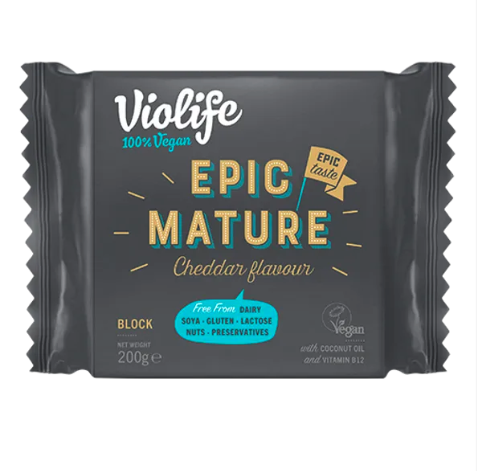
Available to buy in countries across the world, Violife has established itself as a go-to vegan cheese for many plant-based eaters. It’s made from coconut oil, and is available in cheddar, Greek-style, and more.
Sheese
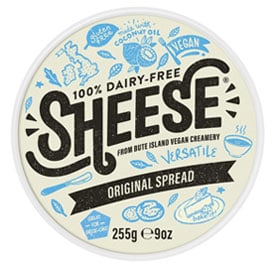
Established in the UK in the 1980s, Sheese was one of the first-ever vegan cheese brands. It’s perhaps best known for its plant-based cream cheese, which come in an array of flavors.
Follow Your Heart
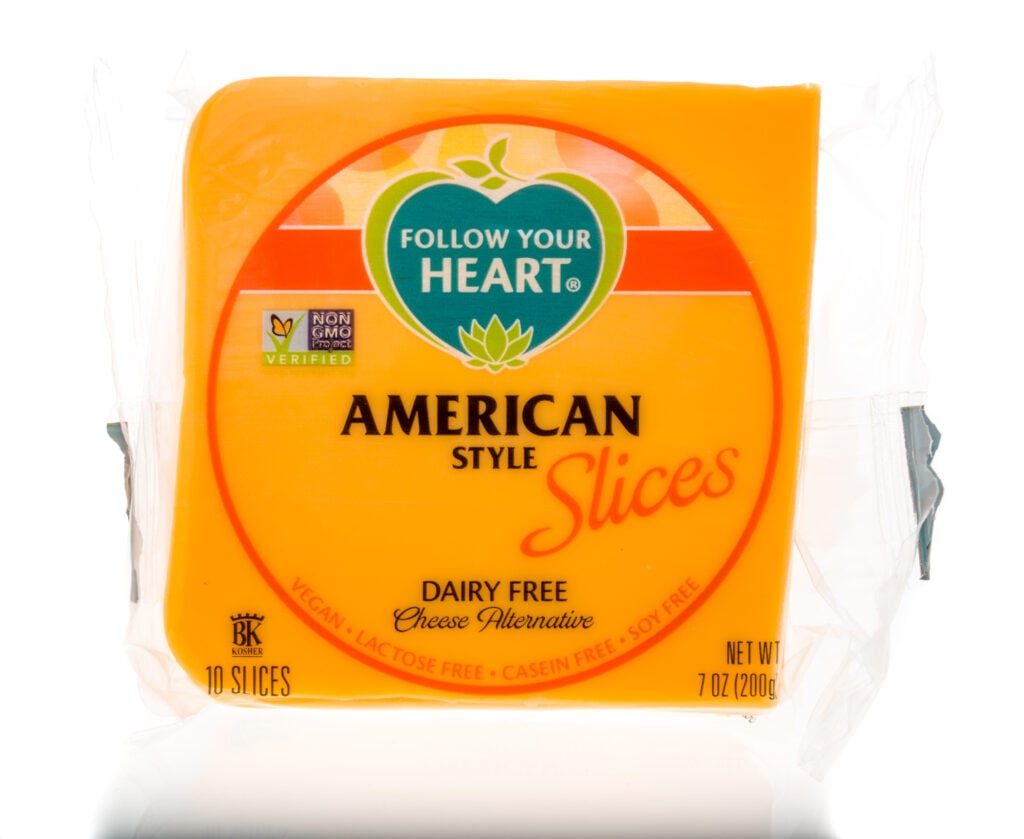
Follow Your Heart hit headlines in 2015 with the release of one of the first vegan egg products. But the plant-based brand also counts cheese among its extensive line-up. It’s available to buy in a range of countries.
Honestly Tasty
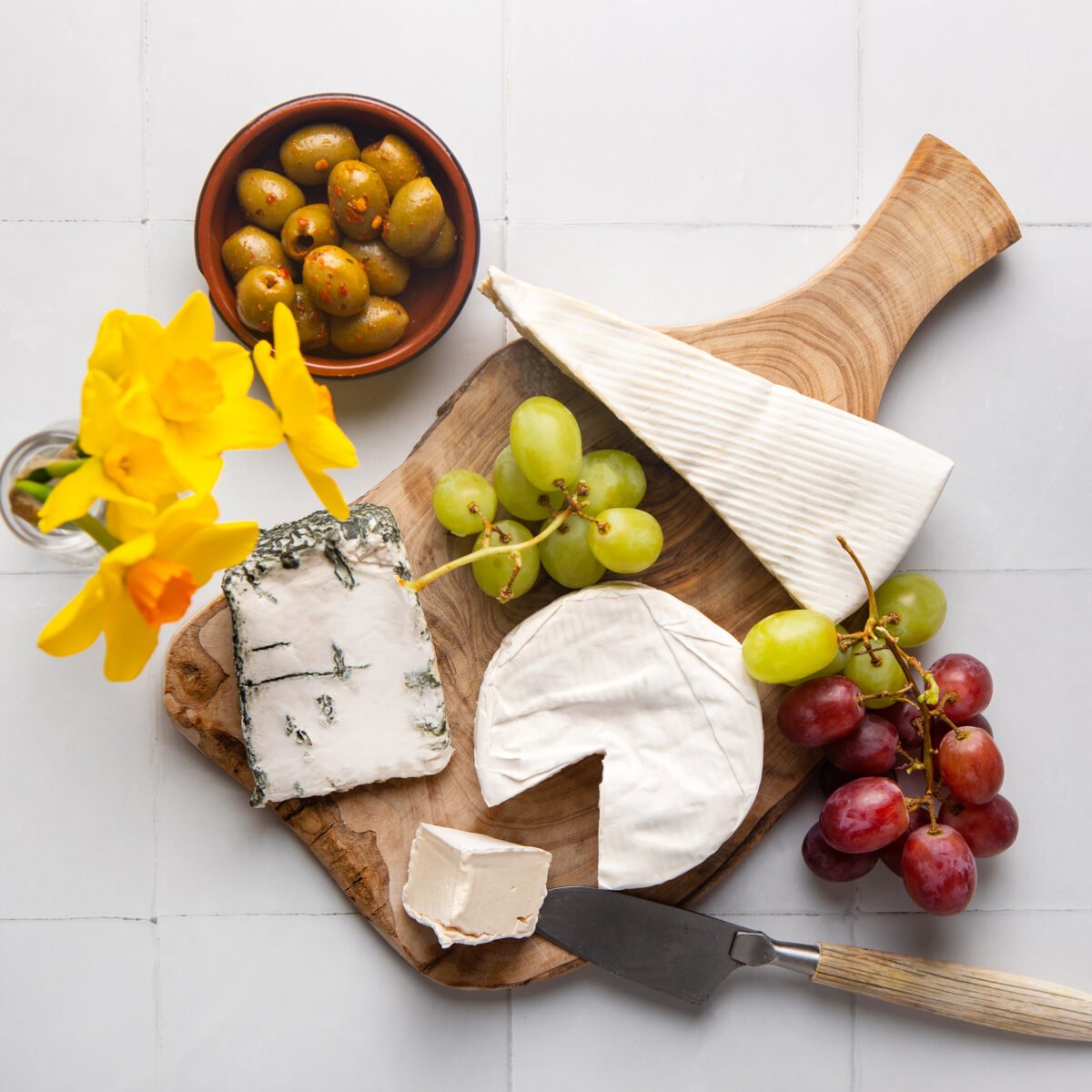
London-based vegan company Honestly Tasty offers dairy-free versions of blue cheese, camembert, brie, and more. The company prides itself on making realistic plant-based alternatives for people who love cheese, and its products are stocked in Selfridges, Planet Organic, and other independent stores.
Daiya
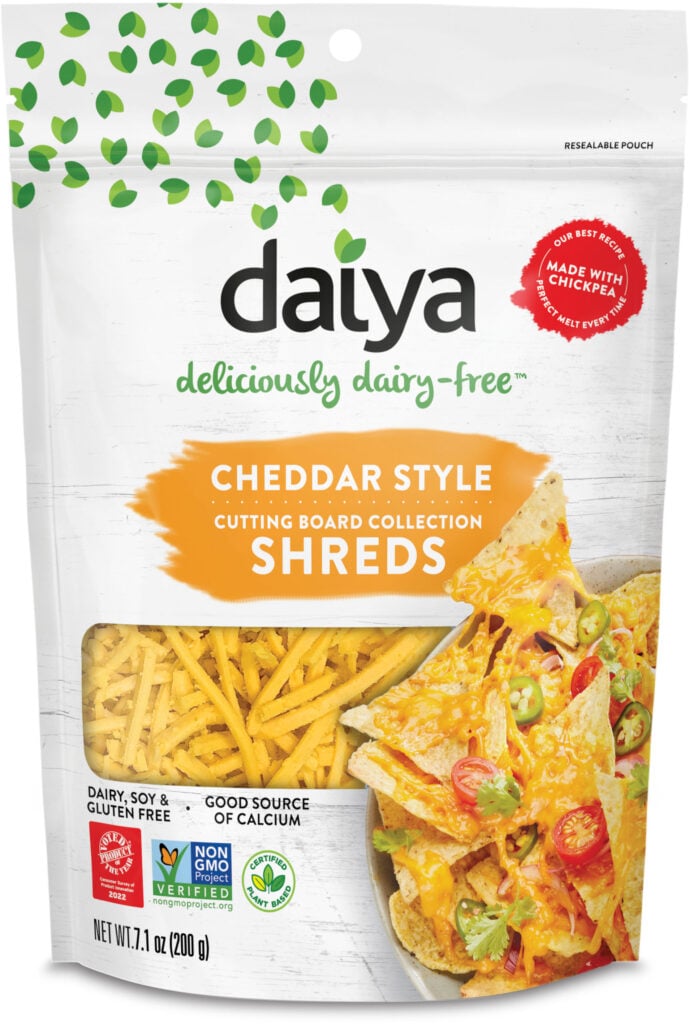
All of Daiya‘s products are free from the top eight allergens, including including dairy, gluten, and soy. It makes a range of vegan cheeses, which are said to melt well and be ideal for grilled cheese.
Other vegan cheese products
Not all of the best vegan cheeses are made by plant-based brands. These dairy companies have also created popular vegan versions.
Cathedral City
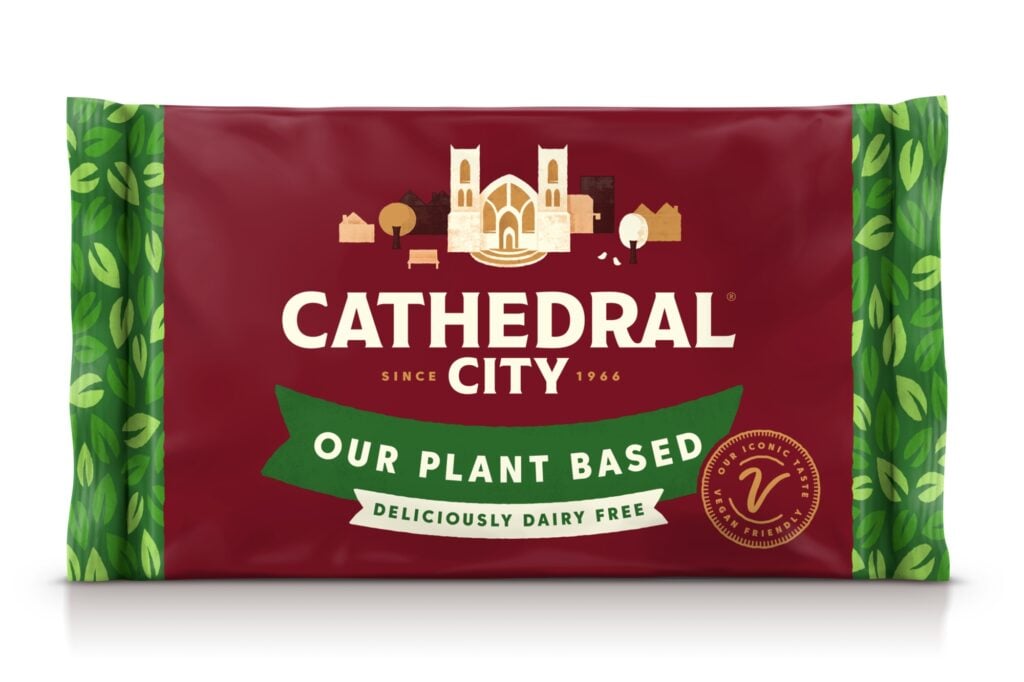
Cathedral City is said to be the UK’s number one cheese brand. In September 2022, the dairy giant launched its first ever plant-based version, which received rave reviews from many vegans.
Babybel
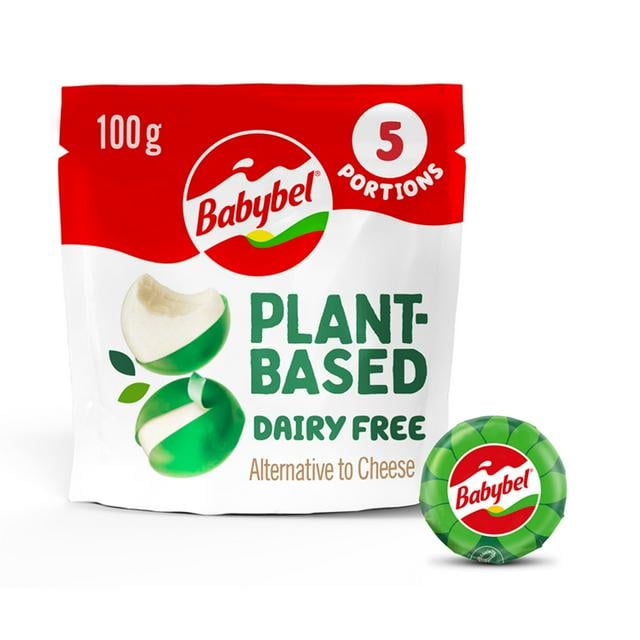
Babybel‘s cheese wheels were a staple of many of our childhoods, and the brand announced the release of a vegan version in 2021. While reviews of the product were initially mixed, it released a “new and improved” recipe in 2022.
Philadelphia
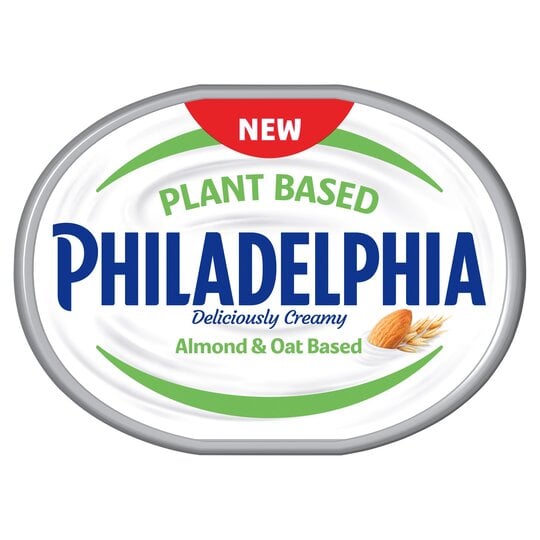
Famous for its cream cheeses, Philadelphia announced the release of a plant-based version in the US in December 2022. You can also buy an almond and oat-based version in the UK.
Laughing Cow
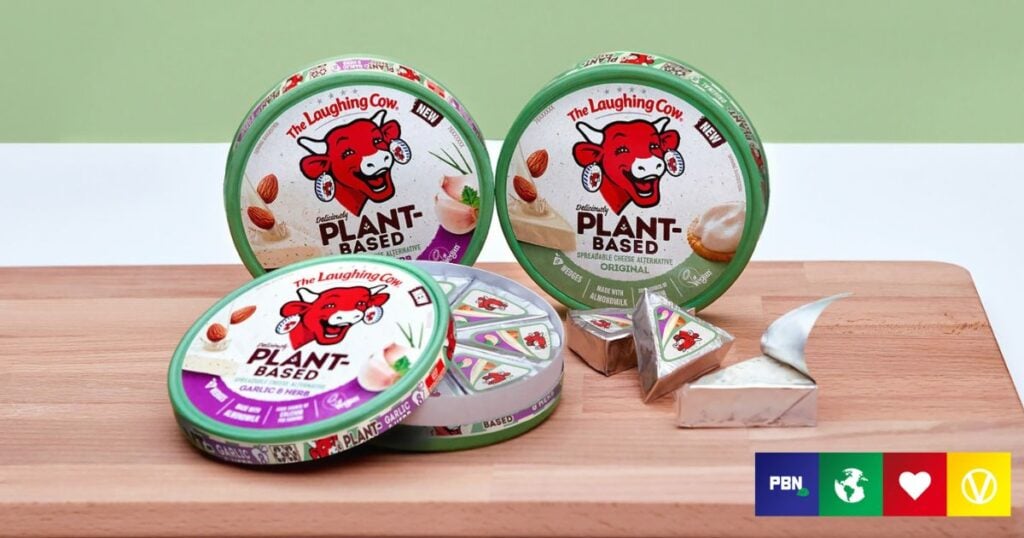
Laughing Cow is set to release a plant-based version of its iconic cheese wedges in the US in 2023. Made with almond milk and fortified with B12, they will come served in its iconic round box.
Vegan cheese recipes: how to make vegan cheese
Here’s a small selection of ideas and recipes to start using vegan cheese.
Daiya lists a recipe for Baked Cheezy Mac that includes Brussels sprouts and crimini mushrooms for extra nutrients.
Try this gluten-free Cheesy Lentil Lasagna for a wholesome supper with 519 calories and 17g of protein per serving.
When you’re craving nachos, Loving it Vegan’s recipe for fully loaded Vegan Nachos will hit the spot.
The recipe links instructions to make a cashew cheese sauce, but someone could use shreds or ready-made cheese sauce instead.
